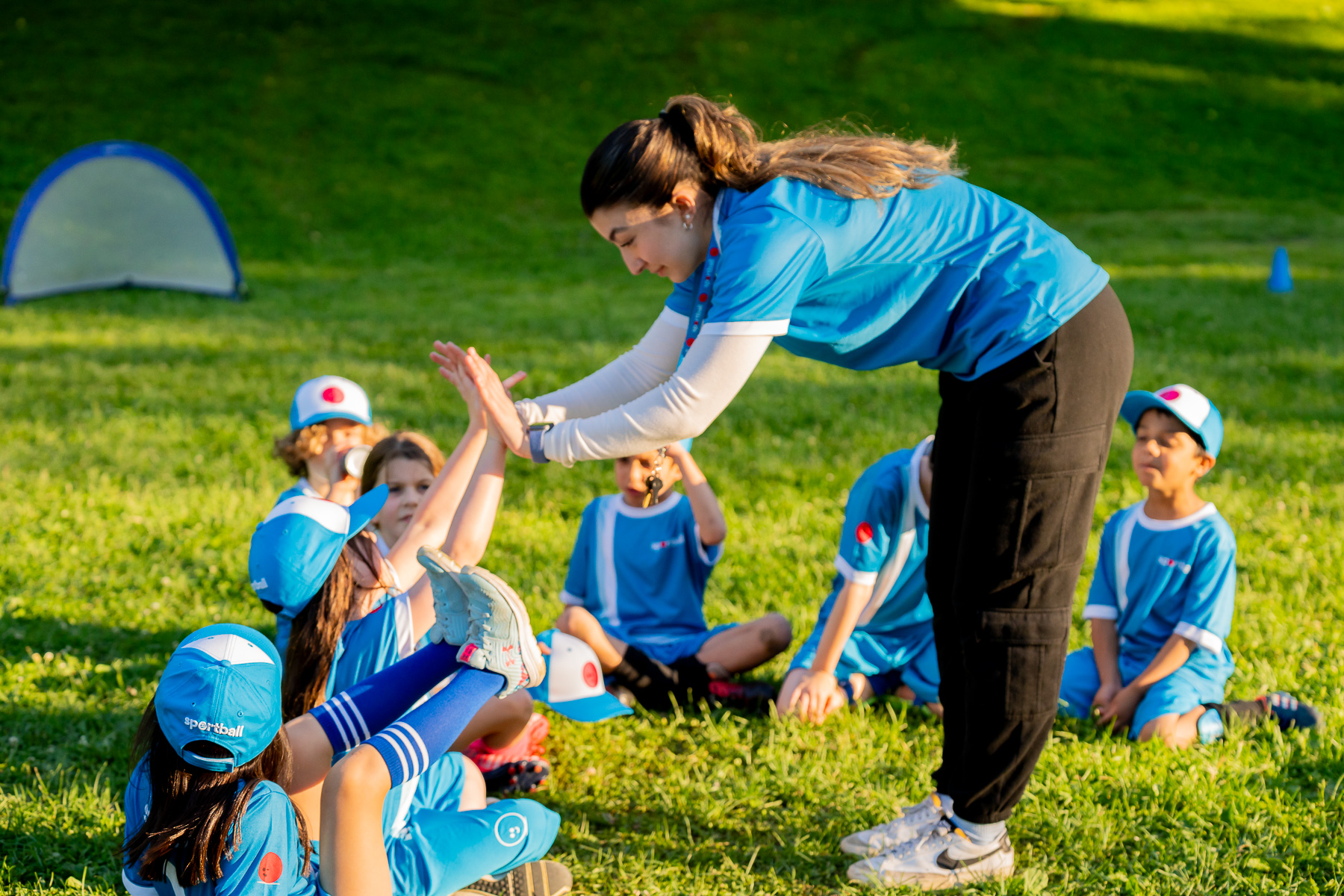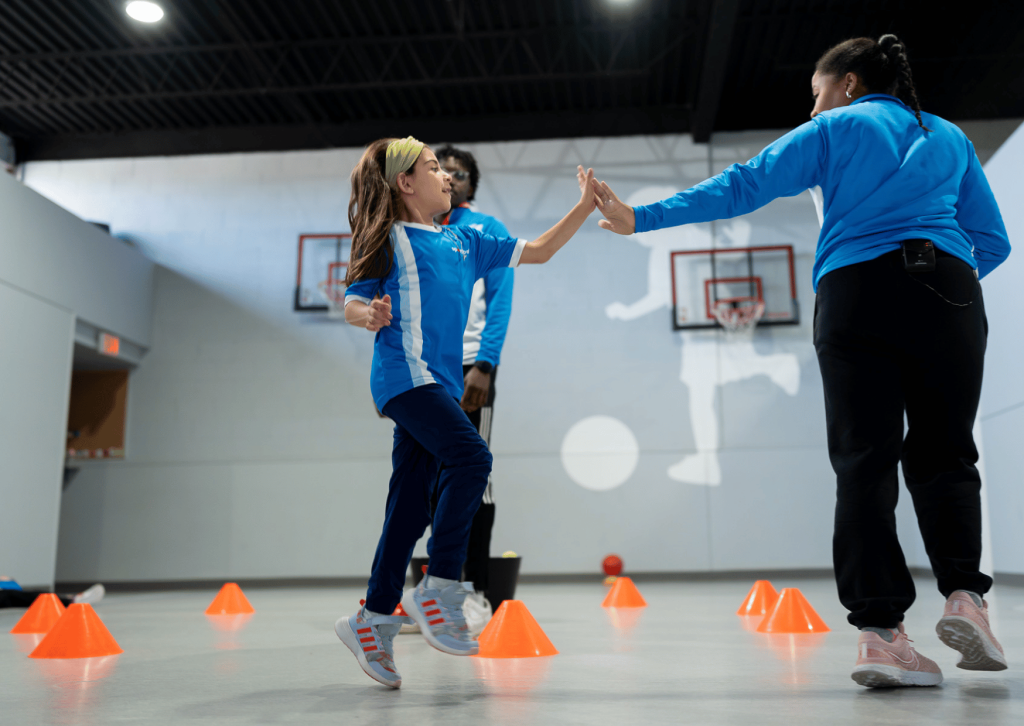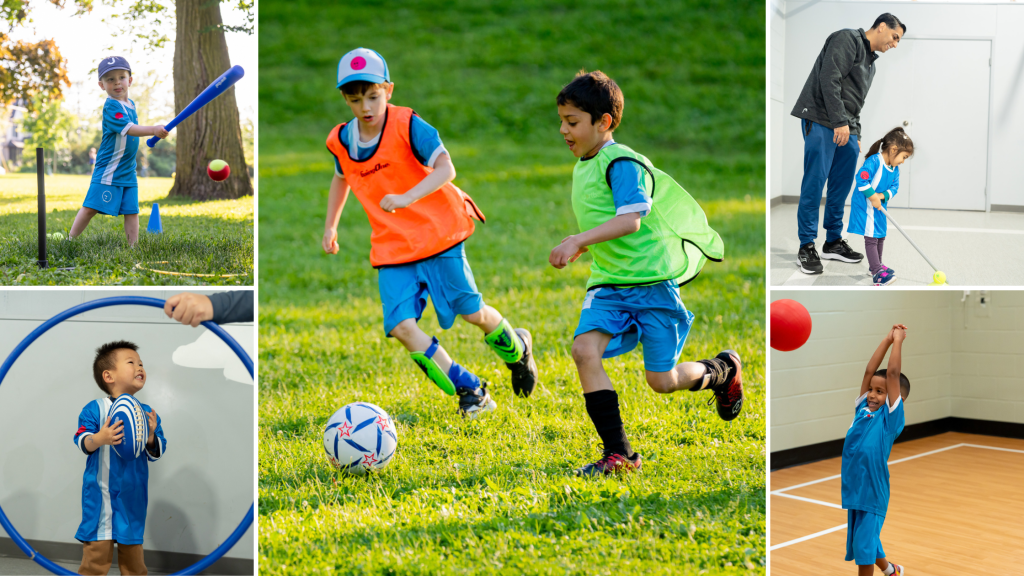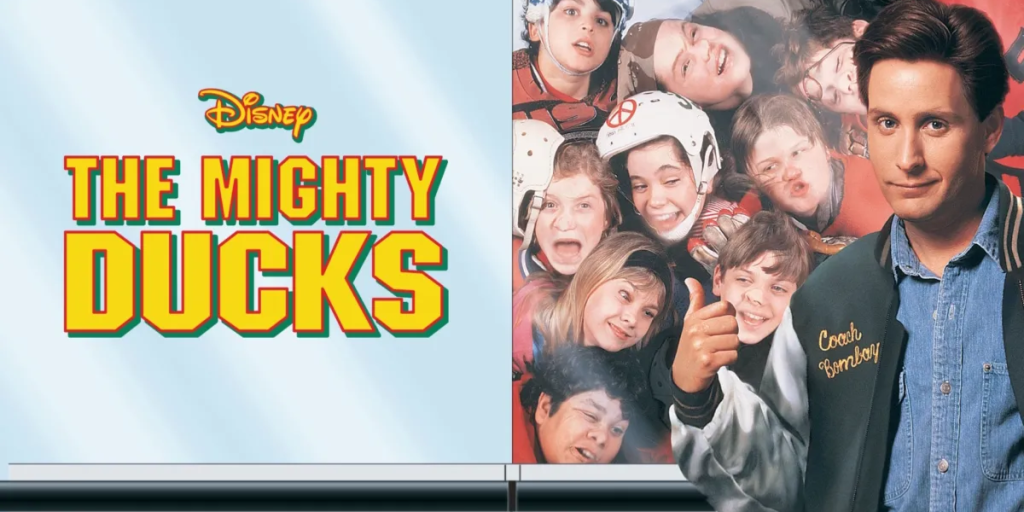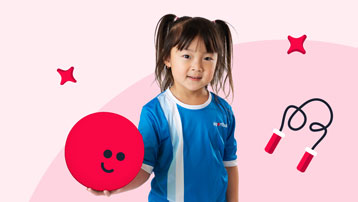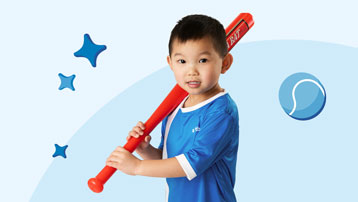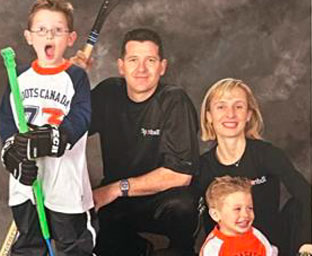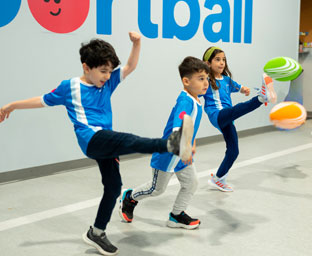Let’s face it—raising a confident, emotionally regulated kid doesn’t happen overnight. It’s a process that happens through everyday moments: when your child gets back up after falling, when they hear “You’ve got this!” from a trusted adult, or when they work through big feelings during a game. From the ages of 16-months to 12 years, these moments have an outsized impact, as they shape who our little ones will become.
Keep reading to learn more about the developmental principles that guide our approach to building social-emotional skills at Sportball.
Social Beings
Early childhood is a key time for brain and emotional development—and what kids experience during these years really sticks. Child psychiatrist Dr. Jean Clinton explains, strong relationships, safe environments, and responsive care help build resilience, confidence, and social-emotional skills that last.
Programs that combine purposeful play and social interaction—like Sportball—do more than teach skills; they shape who kids become. When children learn to take turns, share, and solve problems together, they’re building tools for life—and becoming kind, confident, capable humans along the way.
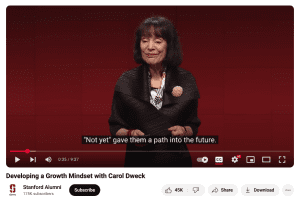
Listen to Dr. Carol Dweck’s groundbreaking research on Growth Mindset.
The Power of “Yet”
As parents, we all want our kids to believe in themselves and keep going when things get tough—and that’s where the concepts of growth mindset and resilience come into play. Psychologist Dr. Carol Dweck popularized the idea that kids do better when they believe their abilities can grow with effort, not just talent. When we encourage kids to “try again” after mistakes and remind them that learning takes time, we’re helping them build emotional strength, bounce back from setbacks, and feel proud of their progress—not just their outcomes.
“I Am So I Can”
Kids thrive when they believe in themselves—and that belief often starts with the words they hear. Positive affirmations and encouraging messages help shape how children see themselves, especially in new or unfamiliar situations. When kids are reminded that they’re capable, kind, and strong, they’re more likely to take on challenges, try new things, and build the confidence that carries them through life.
Purposeful, Positive & Fun-First Play
Kids thrive when they feel seen, supported, and free to be themselves. That’s why Sportball’s programs go beyond sports skills—with a focus on building confidence, connection, and life skills through fun, age-appropriate play. From fan-favourite games like Popcorn to Rolling Donuts, which double as exciting and educational through the use of storytelling and gross motor skills development (like hand-eye coordination), Sportball puts the FUN in FUNdamental skill-building. From toddlers to tweens, we meet kids where they’re at, prioritizing encouragement over competition and helping them grow through purposeful movement and meaningful relationships.
Summary
Confidence and social skills grow when kids are seen, supported, and allowed to learn at their own pace, which is why our programs are designed to grow with your child, building skills and their confidence, step-by-step. Toddlers (16 months–3 years) start with caregiver support, learning skills like focus and coordination. As they grow, kids (ages 3–9) gain independence, refine skills, and learn to work as a team with the support of our skilled coaches. By ages 9–12+, they’re building leadership, strategy, and teamwork skills—an essential foundation for higher-level sports.
To explore Sportball’s programs and find one near you, click here.
References:
Arthur-Mensah, V., & Njoku, S. (2025). I Am so I Can. StellaINC.
Clinton, J. (2025, June). Strong Educators, Strong Foundations – with Dr. Jean Clinton. YouTube. https://youtu.be/2FWGw8DX7ZE?si=xh2OqIN61F5UzKwx
Dweck, C. (2014, October 9). Developing a Growth Mindset with Carol Dweck. YouTube. https://youtu.be/hiiEeMN7vbQ?si=Ai2AQ0l51ybLzszW
About the Author:
Ronda Robinson is the Product Lead and a Mentor Coach at Sportball for the last 4 years. She is a recent graduate with a Master of Arts in Child Study and Education from University of Toronto. Ronda has a passion for designing curriculum and writing on childhood resilience.
